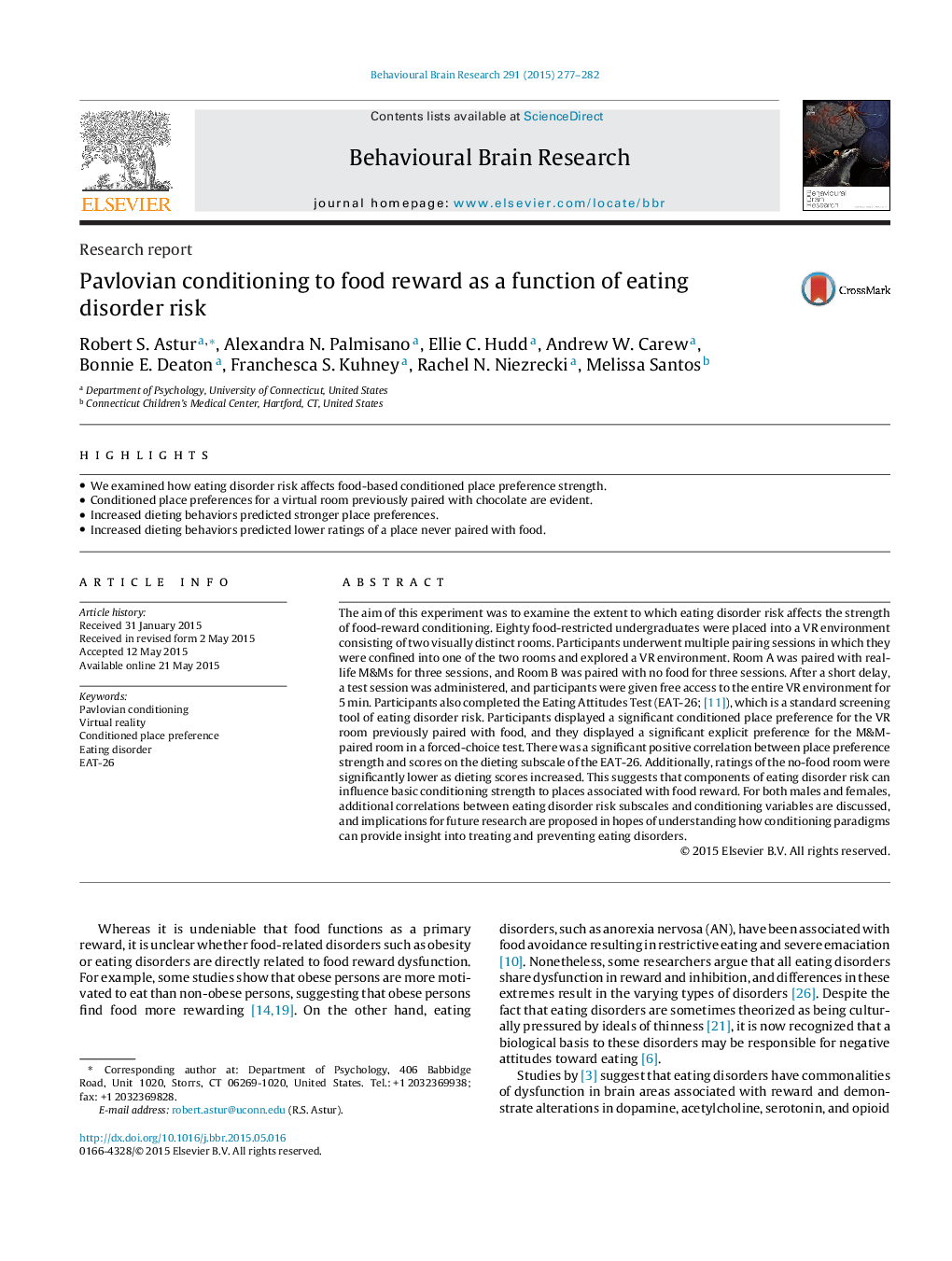| کد مقاله | کد نشریه | سال انتشار | مقاله انگلیسی | نسخه تمام متن |
|---|---|---|---|---|
| 4312398 | 1612941 | 2015 | 6 صفحه PDF | دانلود رایگان |
• We examined how eating disorder risk affects food-based conditioned place preference strength.
• Conditioned place preferences for a virtual room previously paired with chocolate are evident.
• Increased dieting behaviors predicted stronger place preferences.
• Increased dieting behaviors predicted lower ratings of a place never paired with food.
The aim of this experiment was to examine the extent to which eating disorder risk affects the strength of food-reward conditioning. Eighty food-restricted undergraduates were placed into a VR environment consisting of two visually distinct rooms. Participants underwent multiple pairing sessions in which they were confined into one of the two rooms and explored a VR environment. Room A was paired with real-life M&Ms for three sessions, and Room B was paired with no food for three sessions. After a short delay, a test session was administered, and participants were given free access to the entire VR environment for 5 min. Participants also completed the Eating Attitudes Test (EAT-26; [11]), which is a standard screening tool of eating disorder risk. Participants displayed a significant conditioned place preference for the VR room previously paired with food, and they displayed a significant explicit preference for the M&M-paired room in a forced-choice test. There was a significant positive correlation between place preference strength and scores on the dieting subscale of the EAT-26. Additionally, ratings of the no-food room were significantly lower as dieting scores increased. This suggests that components of eating disorder risk can influence basic conditioning strength to places associated with food reward. For both males and females, additional correlations between eating disorder risk subscales and conditioning variables are discussed, and implications for future research are proposed in hopes of understanding how conditioning paradigms can provide insight into treating and preventing eating disorders.
Journal: Behavioural Brain Research - Volume 291, 15 September 2015, Pages 277–282
